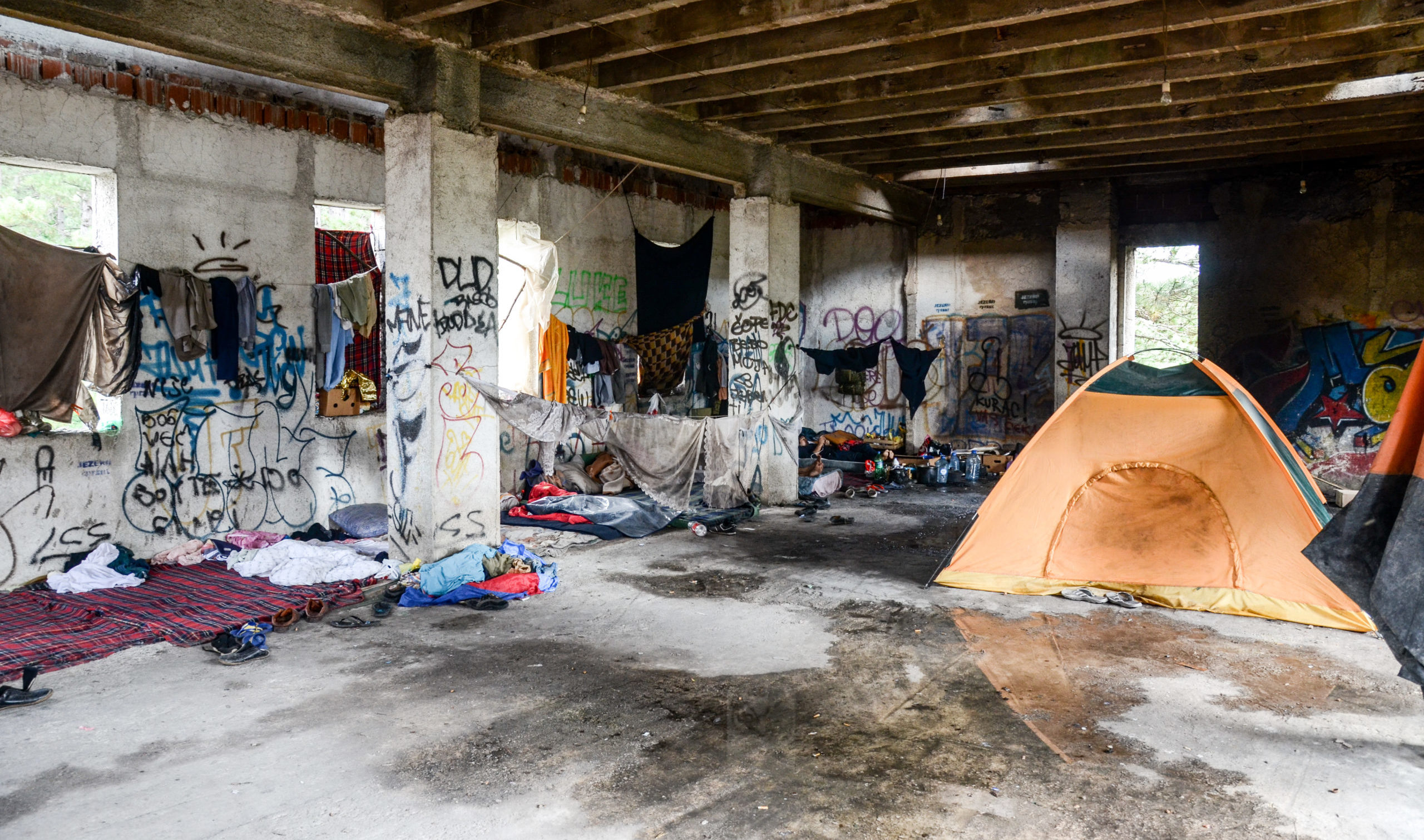A Migrant With No Recourse to Public Funds on Being Made Homeless During a Pandemic
by Mohammed, as told to Benjamin Morgan
28 May 2020

Boris Johnson apparently had no idea that tens of thousands of people living in the UK are denied access to public funds, including basic welfare benefits.
When questioned by the Labour MP for East Ham Stephen Timms on Wednesday, the prime minister appeared bewildered by the no recourse to public funds (NRPF) policy, which left thousands of families destitute before Covid-19, and has become even more of a problem as the pandemic has spread across the country, decimating livelihoods.
A very striking exchange with Boris Johnson, who reveals he has no idea that thousands of people living and working legally in the UK have no access to public funds or welfare. pic.twitter.com/CyU3IxAtER
— Thomas Colson (@tpgcolson) May 27, 2020
Mohammed, a migrant from Bangladesh who has lived in the UK for nearly a decade, has NRPF status and became homeless as a result of Covid-19. He spoke to Novara Media about his experience of seeking support during the pandemic.
‘I knew my life didn’t have value.’
Mohammed: I come from Dhaka. My dad wanted me to get my higher education abroad, so, after completing my A levels, I did my IELTS, got a student visa and came to the UK.
I came to do a BA in business studies, but when I arrived in 2009 it was hard to find a place at a good college. There was a double-dip recession, so they were encouraging lots of foreign students to come to try and stimulate the economy. I didn’t know anything about this. I just came to do my degree.
Eventually I found a place. But when I was in my final year — I had one exam left — I got caught up in the TOEIC cheating scandal [when, in 2014, the Home Office accused tens of thousands of foreign students of cheating on an English test].
I explained to the Home Office that I didn’t cheat, that my English is fluent. But they shut down my college and accused me of fraud.
It felt politically motivated. Theresa May was Home Secretary and wanted to get net migration down. They cancelled the visas of 33,000 foreign students. Some were arrested and deported. Every night when I went to bed, I was afraid they would come to my house and arrest me.
I spent 47 days in immigration detention. Before that I spent two nights in the police station. That was when my mental health collapsed. I was screaming “Amma!”— it means ‘mother’ in my language. The police officers shouted back: “Your mummy’s not here.”
When the Covid-19 pandemic started I was living in Tower Hamlets. Friends and relatives had been helping me with my rent and bills. But then my [immigration] hearing date was adjourned because of the pandemic. At that point my friends said they couldn’t support me anymore. They had their own problems to deal with.
So I couldn’t pay my rent. I tried to make my landlord understand, but he needs money too. He has two children. He started shouting at me and I had to call the police, who told him: “There’s a pandemic. You can’t evict anyone for the next three months.” But when they’d gone, my landlord brought a couple of guys. They were all shouting at me and took my keys and my fob.
I begged my sister in Kuwait to send me £100, telling her that the government would help me with housing. But when I went to the council they said I wasn’t eligible because I had NRPF. I ended up sleeping in the park.
After a mutual aid group intervened, the council gave me a room in a hotel. But two days later they evicted me, saying I was “not eligible”. I asked for a social worker because of my mental health problems. But they said I wasn’t eligible for that either.
I thought about killing myself when they wouldn’t give me a room. I thought about jumping in front of a train. I told them I had an underlying health condition, that I had asthma on top of that. I have been on antidepressants for a long time. I sent them all the medical evidence. But they still didn’t help me.
I started getting ill. I was spending too much time outdoors. I had coldsores and a fever. I thought I might have coronavirus. It was terrible but by then I wasn’t scared. I knew my life didn’t have value.
After a law centre and a local councillor intervened, the council eventually gave me another place to stay. They made me travel across London twice to sign the paperwork, even though there was a lockdown.
Now, I’m staying in a big hotel on the outskirts of London. Most of the people here are a bit troubled. The staff are nice, but there are lots of fights. I saw one man being attacked with a knife. The police come about three times a day. Now that the lockdown is being eased, I feel anxious about being evicted again.
I understand that nobody was prepared for the pandemic — not even Boris Johnson. But I wish everyone could have been treated equally. I don’t have indefinite leave to remain, but I didn’t think Britain would let me down in a moment like this.
They didn’t care about me because I’m an immigrant. They didn’t treat me as a human. To give me a place and then take it away because I’m not British? I wouldn’t wish that on my worst enemy.
Mohammed was speaking to Benjamin Morgan from the Public Interest Law Centre.